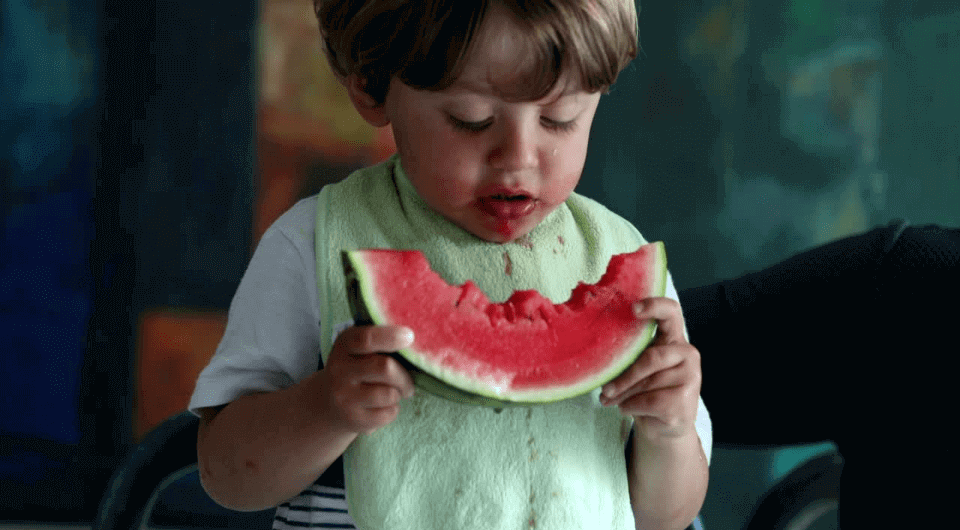
Posted on: 01 October, 2021
Good oral health is important at all ages. It’s especially vital for kids whose teeth are still developing and are more vulnerable to tooth decay and damage.
3 minute read
Good oral health is important at all ages. It’s especially vital for kids whose teeth are still developing and are more vulnerable to tooth decay and damage.
Read our short guide on how to encourage good habits in your kids that could lead to healthier teeth and gums for life.
Tooth decay is the most common chronic disease that affects Australian children, and it's a growing concern. According to the latest data from Australia's Oral Health Tracker:
Decayed baby teeth can damage the adult teeth growing beneath them or may lead to orthodontic issues later. They can also lead to cavities or infections, as well as pain and discomfort.
The good news is that tooth decay and most other dental problems can usually be prevented when you help your kids to adopt good oral hygiene habits. These include:
You should brush children's teeth as soon as they appear. Kids need help brushing until the age of 8 to 9 years old, where they can begin doing it themselves under your supervision (this ensures they’re doing it properly!)
Dentists recommend brushing teeth for 2 minutes, twice a day. You can keep your family's brushing on track by using a simple timer, playing some tunes or downloading a toothbrushing app.
Choose a toothbrush that's the right size for your child's mouth and has soft bristles. Brush gently in a circular motion, otherwise you can try an electric toothbrush and simply glide it slowly across each tooth.
Fluoride in toothpaste helps to strengthen teeth and reduce plaque build-up, but swallowing too much fluoride can lead to white stains appearing on teeth (a condition known as fluorosis).
You can prevent this by using low-fluoride children's toothpaste until the age of 6, at which time they might be ready to switch to standard toothpaste.
Only use a pea-sized amount of toothpaste and teach your child to spit out any excess. Avoid rinsing their teeth straight after brushing so teeth continue to be protected by the fluoride.
Flossing is important for removing food and bacteria from between teeth. You should start flossing a child's teeth as soon as their teeth begin to touch together.
If they don't like the feeling of standard floss, you can try a floss threader, a thicker dental tape or interdental brush. Most children can start flossing by themselves from around the age of 10.
A little sugar can help to provide energy for active kids, but too much sugar in food and drink can lead to tooth decay by feeding bacteria in plaque.
It's recommended that children have no more than 12g of added sugar (3 teaspoons) daily. Unfortunately, the reality is that more than 70% of Australian kids and teens consume more than this.
Some of the worst offenders for high sugar content are lollies, biscuits, soft drinks and fruit juices. These should be limited or even better, swapped for healthier options entirely.
A balanced diet is important for children's oral health as well as their overall health. Vitamins and minerals such as calcium help to strengthen their teeth and lower oral health risks.
Teeth-friendly foods include fresh fruit and vegetables, dairy such as cheese and natural yoghurt and protein such as lean meat and fish.
Kids should also drink plenty of water throughout the day to help them stay hydrated and rinse away bacteria in the mouth. Tap water has the added benefit of fluoride, which is maintained at safe levels to help protect teeth.
Persuading kids to brush and floss regularly and to give up sugary treats is often easier said than done. Giving praise and rewarding their efforts can show your appreciation and provide the incentive they need.
Rewarding with stars, a favourite activity or saving up points towards a larger gift could help reluctant brushers to adopt good habits. Just make sure these rewards don't involve sugar and undo all your good work!
Kids should visit a dentist by their first birthday or within 6 months of their first tooth appearing. Start bringing them for regular check-ups from around the age of 2 or earlier if their dentist recommends it.
Our dentists, nurses and hygienists at Mount Lawley Dental, all love treating kids. During your child's first visit, their dentist will help them feel comfortable by using a mirror to count their teeth, then gently examining their mouth to check their development and look for signs of decay or other problems.
If necessary, the dentist may recommend a preventive treatment to lower your child's oral health risks. This may include fissure sealants to make teeth resistant to decay or a custom mouthguard if they play contact sport.
You may be eligible for free children's dentistry services if you claim certain Medicare benefits or if your family health fund policy covers dental care. Our reception team can help you to find out what you're entitled to claim using the HICAPS machine during your visit.
If your child is due for a check-up or they're experiencing pain or other trouble with their teeth or mouth, contact Mount Lawley Dental to book an appointment with our children's dentists in Perth.
We provide general check-ups and preventive or corrective treatments to help kids of all ages maintain good oral health. We also give out certificates and toothbrushing timers to reward and encourage good habits.
Call our friendly team today on (08) 9227 8777 or book online for kids' dentistry in Mount Lawley, Highgate, Inglewood and North Perth.
Having trouble getting your child to brush their teeth? Read our handy blog on How To Make Toothbrushing Fun For Kids, next!